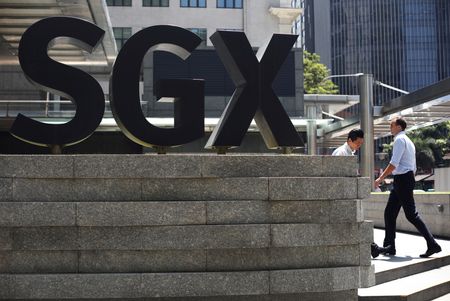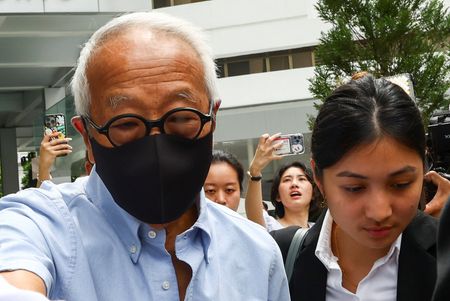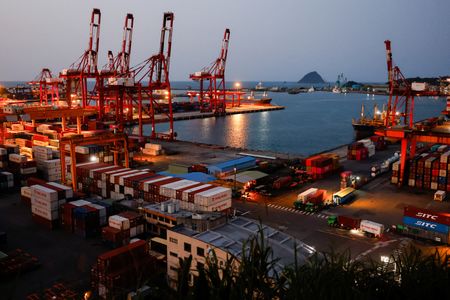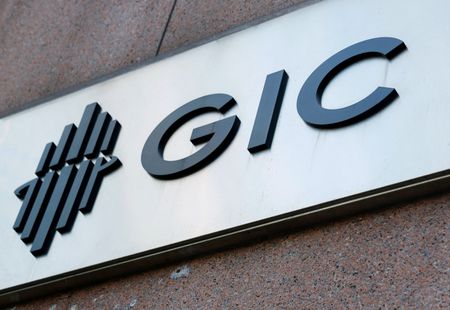By Sameer Manekar
(Reuters) -As reverberations from U.S. President Donald Trump’s tariffs are felt across markets, investors are increasingly gravitating toward Singapore’s high-yield, defensive companies, including telecom firms, pivoting away from old favourites such as banks.
Singapore’s benchmark index has proved resilient in the face of the back-and-forth tariff salvos, eking out a small gain for the year and faring better than regional peers as investors hunt for safe bets during the market tumult.
“Singapore is a high-yield market, which is going to be interesting and defensive in these times,” said Kenneth Tang, senior portfolio manager at Nikko Asset Management.
“It has characteristically been a lot more defensive and yield focused, and that will work in its favour.”
Singapore’s telecom, industrials, and utilities stocks – viewed by investors as defensive sectors during extreme volatility – have become hot favourites, attracting the most institutional money in the last two weeks.
Telecommunications firm Singtel pulled in S$343.6 million ($261.6 million) in the past two weeks alone from institutional investors, more than the S$297 million it received in the first three months of the year, exchange data showed.
That compares with S$259 million net institutional outflows from the three Singapore banks – DBS, OCBC, and United Overseas Bank – over the last two weeks, and combined outflow of S$2 billion this year.
Financials comprise nearly half the Straits Times Index and powered the market surge in 2024. But the three big banks have underperformed the broader market this year due to worries over a slowdown in earnings growth and macroeconomic headwinds.
In contrast, Singtel has gained more than 22% this year and was last near an eight-year high, while ST Engineering has advanced 54% to record highs.
The tariffs have refocused investors’ attention on Singapore equities – previously overlooked due to limited growth prospects – for their high capital returns, alongside the city-state’s stable political environment, steady currency and deep fiscal reserves that can help it weather trade headwinds.
“A lot more corporations are paying out even more yields or more dividends, and that is a perfect narrative at a time when there is a flight to safety and investors are focusing more on the certainty of income,” Tang said.
Foreign investor interest, as reflected by the BlackRock-managed iShares MSCI Singapore ETF, has also returned, though it remains far below where it was before Trump’s April 2-tariff announcements.
Singapore stocks have risen more than 14% in the past two weeks and clocked an eight-session rally, following a sharp drop in the immediate aftermath of the reciprocal tariffs announced in early April.
The dividend yield of Singapore stocks was at 4.93, higher than the yield for Malaysian and Thai equities, LSEG data showed.
($1 = 1.3135 Singapore dollars)
(Reporting by Sameer Manekar in Bengaluru; Editing by Ankur Banerjee and Jacqueline Wong)











